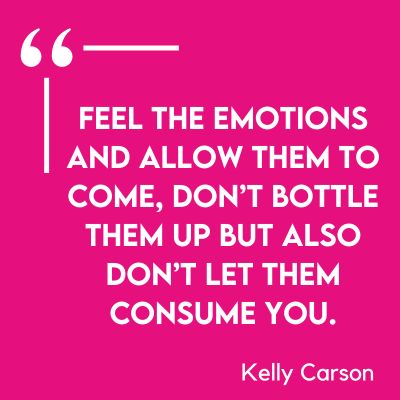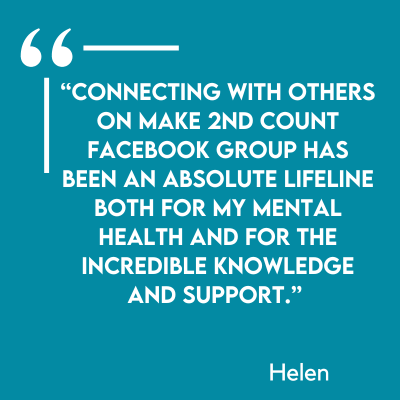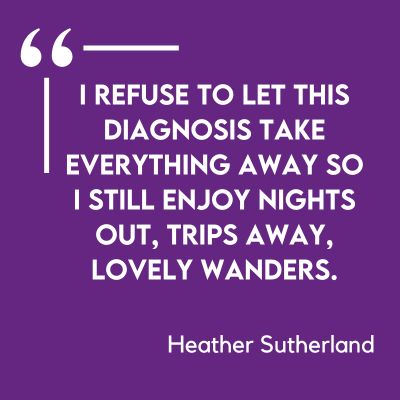Advice for the Newly Diagnosed from the Make 2nds Count Community
Finding out you have secondary breast cancer is a very overwhelming time, but life does not stop: the work emails keep coming, the dog still needs to be walked, there is a pile of dishes by the sink and yet you have been thrown into a club that you do not want to be a part of. You are now navigating a new world of medical terminology, tests, and treatments. It can be so difficult to know what to do next.
Make 2nds Count provides the opportunity for patients via our SBC & Me blog series to tell their story of what it is like to live with secondary breast cancer and their treatment journey. If you are interested in providing a testimonial please complete an SBC & Me Form.
We asked our community “what advice would you give to someone newly diagnosed?” and this is what they had to say:
- Allow yourself time to process your feelings and emotions
There is no shame in feeling your feelings, but if you are overwhelmed or don’t want to experience these alone, talk to someone you trust or reach out for help.
 “Give yourself time to process the diagnosis. Look up the seven stages of grief, you will have highs and lows like with anything in life.” - Nuala Kelly
“Give yourself time to process the diagnosis. Look up the seven stages of grief, you will have highs and lows like with anything in life.” - Nuala Kelly
- Don't Google
Often statistics can be scary and out of date. You are not just a number and your cancer is different to everyone else’s. If you want information then stick to reliable websites; Make 2nds Count, Cancer Research UK, Breast Cancer Now or Macmillan are a few examples.
“Everyone says it but don't google.... statistics are out of date and do not reflect the new treatments that are available today. You are an individual and your journey is unique to you and will be different from someone else's." - Viv Smith
- Join support groups
 It can help to speak to people in similar positions to you, as it’s not easy for everyone at home to understand what you’re going through. You can join the Make 2nds Count Facebook group to gain knowledge, support and inspiration from the community.
It can help to speak to people in similar positions to you, as it’s not easy for everyone at home to understand what you’re going through. You can join the Make 2nds Count Facebook group to gain knowledge, support and inspiration from the community.
“There are women out there in the online cancer community who I've never met in person but have such an impact on my life in a positive way.” - Annemarie Wilson
- Take one day at a time
If you feel able to, keep up as much of your ‘normal’ life as possible. When there is uncertainty in the future it can feel like there are so many changes. It can be helpful just to think about today and what you are going to have for dinner and to worry about other things when you feel less overwhelmed.
“The biggest advice I give is take one small step at a time. Never think too far ahead and never think “what if”. - Fran Whitfield
- Don’t feel silly asking questions
If you are unsure about your diagnosis or the treatment plan then ask questions. There is no shame in wanting to understand your body. If you feel more comfortable, make a list of questions before appointments or take someone you trust with you who can ask your questions for you.
"Research as much as possible. Never settle if you don't agree with the answers you receive.” - Lisa
- Find new hobbies
 You might need to find new hobbies which you are able to keep up with after your diagnosis. Some people take up new hobbies to help them relax such as writing or yoga. Find out what works for you.
You might need to find new hobbies which you are able to keep up with after your diagnosis. Some people take up new hobbies to help them relax such as writing or yoga. Find out what works for you.
“I try to eliminate as much stress from my life as possible and keep doing the things I enjoy. For me, keeping busy, walking every day and seeing friends really helps. I take photos of everything now as every day is a memory.” - Viv Smith
-
Live your life
On days that you feel okay, embrace that and don’t let a secondary breast cancer diagnosis rule your life. Things may be different but make a new normal and try to learn to enjoy that.
“Go enjoy life and make some memories, do all those things you’ve always wanted to and stop putting them off, not because of the illness, but because why not!”- Kelly Carson
“Don’t waste the healthy moments because your brain keeps reminding you that you are sick. If you feel good, then feel it with all your might, embrace it.” - Chantelle Van Der Merwr
-
Accept help from friends and family
Friends and family may offer to help you or your family with household chores or food shopping. You can accept this help and also ask for it when you are struggling. People want to help you but they might just not know how. You might also want a family or friend to join you when going to appointments to help you process the information and provide emotional support.
"Make sure you have someone else with you for your appointments because sometimes it can be hard to take in all the information." - Lyndsey
-
Listen to your body
If your body is telling you to rest, then rest. Don’t beat yourself up if you don’t move from the couch, it is likely that you will need more rest than you think you do.
“During the first few months I struggled to listen to my body, but I have now learnt (most days) to rest when I need to and recharge. So my advice - be kind to yourself.” - Sue Thomas
-
Talk
Talking to friends and family about your diagnosis can be hard, it is unlikely that anyone can understand exactly how you feel. But they are there to support you so these conversations are important.
“Talk about everything, the good AND the bad. Let it out.” - Lorraine Smith
Remember you are not alone with your diagnosis and we can support you. There is always someone to talk to or something you can get involved in, online or in person. Our Tea & A Chat service offers a safe space for patients to meet and get peer to peer support in times of uncertainty.
Find out what is happening near you through our support hub.
We have a collection of online resources which may be helpful.
